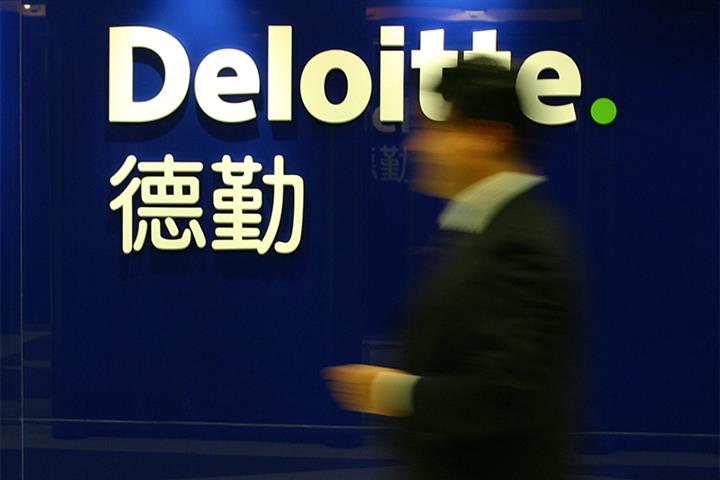 China’s Huge Fines on Deloitte, Huarong Show It Is Holding Auditors to Account, Analysts Say
China’s Huge Fines on Deloitte, Huarong Show It Is Holding Auditors to Account, Analysts Say(Yicai Global) March 20 -- China dished out steep fines to Deloitte China, the member firm of the worldwide professional services network giant Deloitte Touche Tohmatsu in the Chinese mainland, and its client China Huarong Asset Management last week, indicating that the country is strengthening its supervision of finance and accounting, and will not tolerate any bending of the rules, analysts said.
China fined Deloitte's operation in the Chinese mainland a record CNY212 million (USD30.8 million) for serious deficiencies in assessing the asset quality of Huarong, the country’s biggest state-owned bad loan manager, the Ministry of Finance said on March 17.
The world-renowned auditing network’s Beijing office has been suspended from operating for three months and the ministry has issued a warning letter to head office in Shanghai. The two people who signed the auditing reports have had their certified public accountant certificates revoked while another 12 have been suspended from practicing for period between 6 months and a year.
Huarong did not escape unscathed. The Beijing-based company and its seven subsidiaries were fined CNY800,000 (USD116,374) in total, and 19 people were fined between CNY10,000 and CNY50,000 each.
Maximum Fines
The fines were in the upper limit for those found to be violating the accounting law and reveal that supervision is strict, said Li Baixing, professor of accounting at Capital University of Economics and Business.
The administrative fines imposed on Deloitte were steep because the ministry regarded the illegal gains (i.e. the fees earned for the audits) by the auditor to be on the high side and it also adopted a higher multiplier on these fines, Li said. By law, financial regulators can require offenders to pay penalties which are more than their illegal gains but less than five times of the illegal earnings.
The punishments were actually equal, which means the upper limit was adopted according to the law, although the penalties Deloitte received were far beyond those imposed on Huarong, said Liu Junyong, professor of accounting at the Central University of Finance and Economics.
“Huarong’s penalty was much smaller, but it was consistent with the maximum that can be applied under the accounting law. I believe the upper limit needs to be revised to increase the fees paid by law breakers, so as to increase respect for the law,” Liu added.
The closure of Deloitte’s Beijing office for three months may cause the Shanghai-based firm to lose customers. But Deloitte can probably get around the shutdown by conducting its auditing business from its head office or other branches, Li said. So long as the Beijing office does not issue any auditing reports during this period, it will be fine.
Strict Oversight
In recent years, China’s regulators have been making greater efforts to hold auditors and other financial service providers to account so as to crack down on rule-breaking in finance and accounting.
The penalties targeting Huarong and Deloitte are one of the measures taken by the ministry to fulfill its responsibility as supervisor of finance and accounting, said Zhou Hua, a professor at the Business School of Renmin University of China.
This series of incidents reveals China’s resolution to clamp down on illegal and rule-violating acts in accounting and auditing, Liu said. If China is to facilitate the high-quality development of both its economy and society it needs to strengthen supervision of finance and accounting.
The country’s financial regulators penalized over 170 accounting firms last year, more than in the past three years, Vice Minister of Finance Zhu Zhongming said earlier this month. The finance minister will launch a special campaign to monitor the financial and accounting sector this year, to probe into and deal with unlawful acts including financial fraud and false accounting, he added.
The Ministry of Finance’s supervision of accounting firms and certified public accountants will get back to normal, said Li. In future both the ‘Big Four’ accounting firms and large Chinese accounting firms will likely receive severe administrative penalties for any illicit acts.
Editors: Shi Yi, Kim Taylor